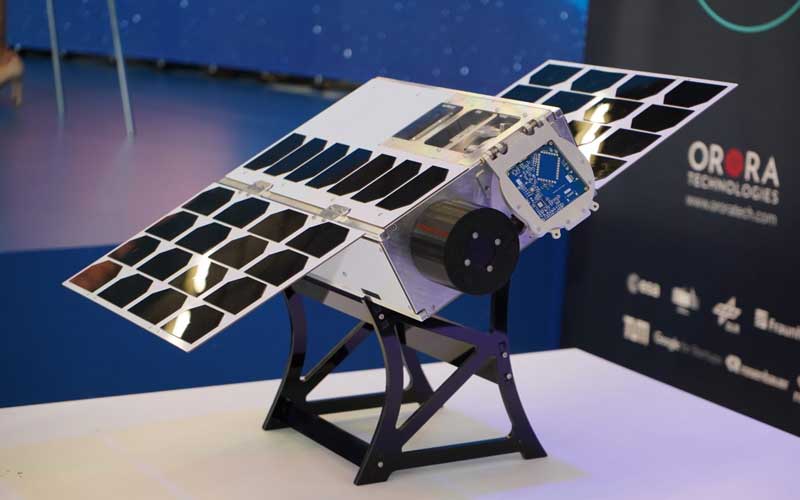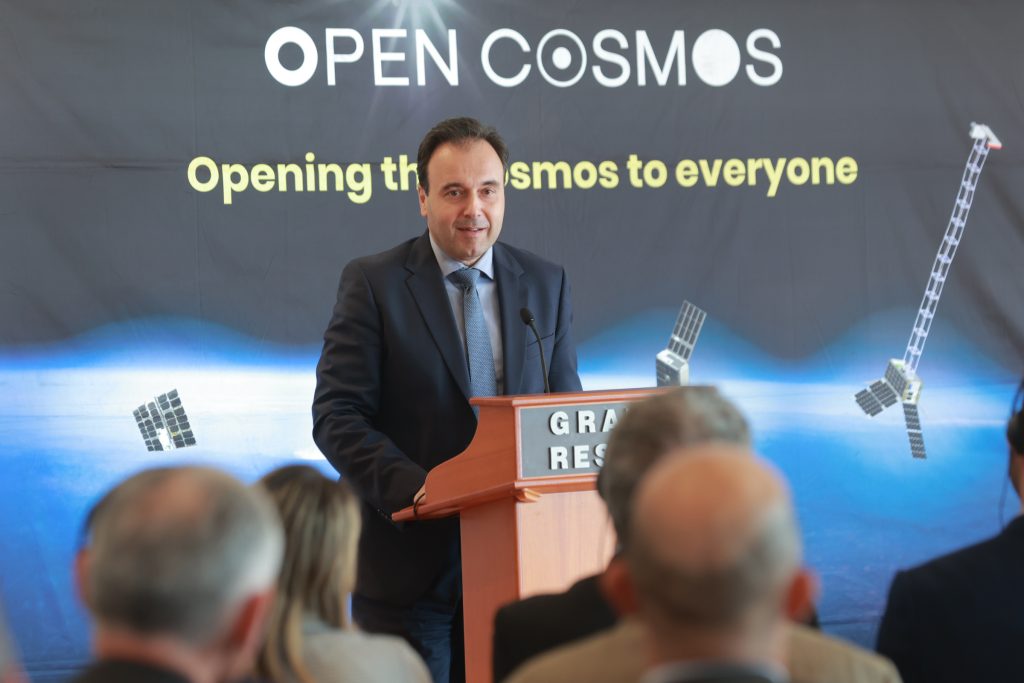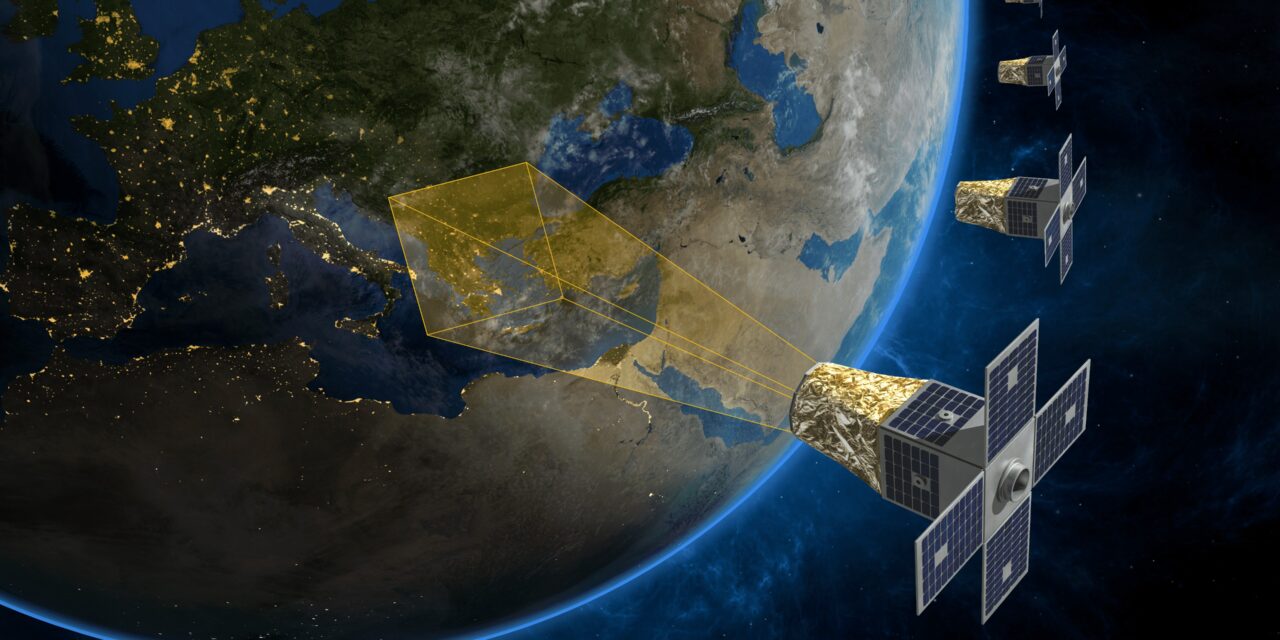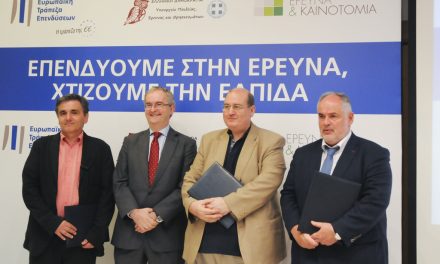As part of its new “National Small Satellite Program” Greece is to acquire 15 earth observation satellites by 2026. This important project is doted with a total budget of 200 million euros and aims to support national efforts related to environmental protection and climate change.
The program, designed by the Ministry of Digital Governance in collaboration with the General Secretariat of Telecommunications and Posts and the Hellenic Space Center (HSC), is funded and managed by Greece alone, while the European Space Agency has been brought on to assist with the management of its initial phases.
Digital Governance Minister Dimitris Papastergiou underlined the critical role of the program in monitoring and tackling climate change in an interview with the Athens Macedonian News Agency (ANA-MPA) : “the 15 microsatellites will provide useful data every day, several times a day,” adding that “the program will also contribute to other areas, such as meteorology, agricultural crops, but also the economy, as the companies that have undertaken the construction of the microsatellites will contracts are required to establish offices, laboratories, and manufacturing facilities in our country; all this knowledge will remain in Greece.”
The National Microsatellite Program of the Ministry of Digital Governance, consists of several projects and programs which are all being implemented; the last contract, for the governmental geoinformation hub, which concerns the collection, storage, processing and distribution of high-precision geospatial data, will be signed on November 14.
Small Satellite Program, brain gain and the consolidation of the Greek space ecosystem
As minister Papastergiou noted, the program is mature: “Three tenders for the satellite system have been completed, they have been signed and by November 14, we will sign the last contract – to which many Greek companies are coming – and which concerns the base station and the creation of this hub. Now we can talk about a national strategy for Space.”
Moreover, he added that “this program is a huge opportunity for the economy, for investments in Greece, because we have resources from the Recovery Fund totaling 200 million euros. However, it is important that this money generates a leveraging of funds so that we can sustain this initiative.”

Minister Papastergiou also underlined the “brain gain” aspect of the program: the Greek space technology ecosystem will now be self-sustaining, as it will generate tangible results and products. Since the very beginning, for the first three tenders for microsatellite construction, we wanted to employ Greek engineers, giving them the opportunity to work on the construction and operation of satellite systems in their own country, while the same time, opening the way for the “repatriation” of brilliant scientific minds, the return of Greeks who emigrated to various countries abroad in search of better professional prospects. The minister stressed that “the companies awarded the contracts are required to establish offices, laboratories, and manufacturing facilities in our country. This ensures that the technology, expertise, and capabilities remain here, allowing us to continue developing independently in the future.”
How will the National Microsatellite Program be utilized?
According to a report by Kathimerini, until recently, every public service or organization procured images and data from space separately through private entities, often leading to wasting resources on the same material. Greece will now achieve autonomy, as satellite data and products derived from the 15 microsatellites will be distributed among various public agencies, such as the Ministries of Environment and Energy, Climate Crisis and Civil Protection, Maritime Affairs, as well as the Police and Fire Department.
Data from microsatellites will be particularly useful in addressing natural disasters, as the images collected from space will complement the data from the Copernicus system and the services of the Hellenic Space Center.
Apart from monitoring natural disasters, the capability to capture high-resolution images will help document unauthorized construction, monitor marine pollution, and track illegal fishing. Additionally, valuable data will be collected on agriculture across the country and on the assessment of renewable energy projects.
The deployment of microsatellites in space will assist in documenting unauthorized construction and monitoring marine pollution and illegal fishing. Furthermore, valuable data will be gathered on agriculture across the country and for the evaluation of renewable energy projects.

“With these microsatellites, we will have multispectral data that will cover the entire Greek territory daily. In this way, we will monitor long-term environmental changes. In an era where we are constantly experiencing the effects of the climate crisis globally, we are utilizing the resources of the Recovery Fund and investing in space to acquire a unique ‘technological toolkit.’ With its help, we will protect human lives and nature,” stated the Minister of Digital Governance, Dimitris Papastergiou, during the event for signing the agreement for the construction and launch of the cluster of 7 microsatellites on July 2 between the European Space Agency (ESA) and the company Open Cosmos.
A second cluster of microsatellites, that will be acquired as Part of National Microsatellite Program Greece are six Thermal and Radar (SAR) Microsatellites, which will strengthen the country’s ability to deal with natural disasters through advanced space technologies.
The relevant agreements for the construction and launch of the cluster of 6 Microsatellites were signed on September 09, between ESA and OroraTech and ICEYE. The microsatellites, which will be deployed through these contracts, according to the Digital Governance ministry, will provide real-time vital data, enabling the relevant authorities to make more targeted and effective decisions to strengthen the country’s resilience against climate crisis.
I.L. with information from Ministry of Digital Governance, ANA-MPA, Kathimerini
* Featured image source: Open Cosmos
TAGS: BRAIN GAIN | MICROSATELLITES | SCIENCE & TECHNOLOGY | SPACE STRATEGY














